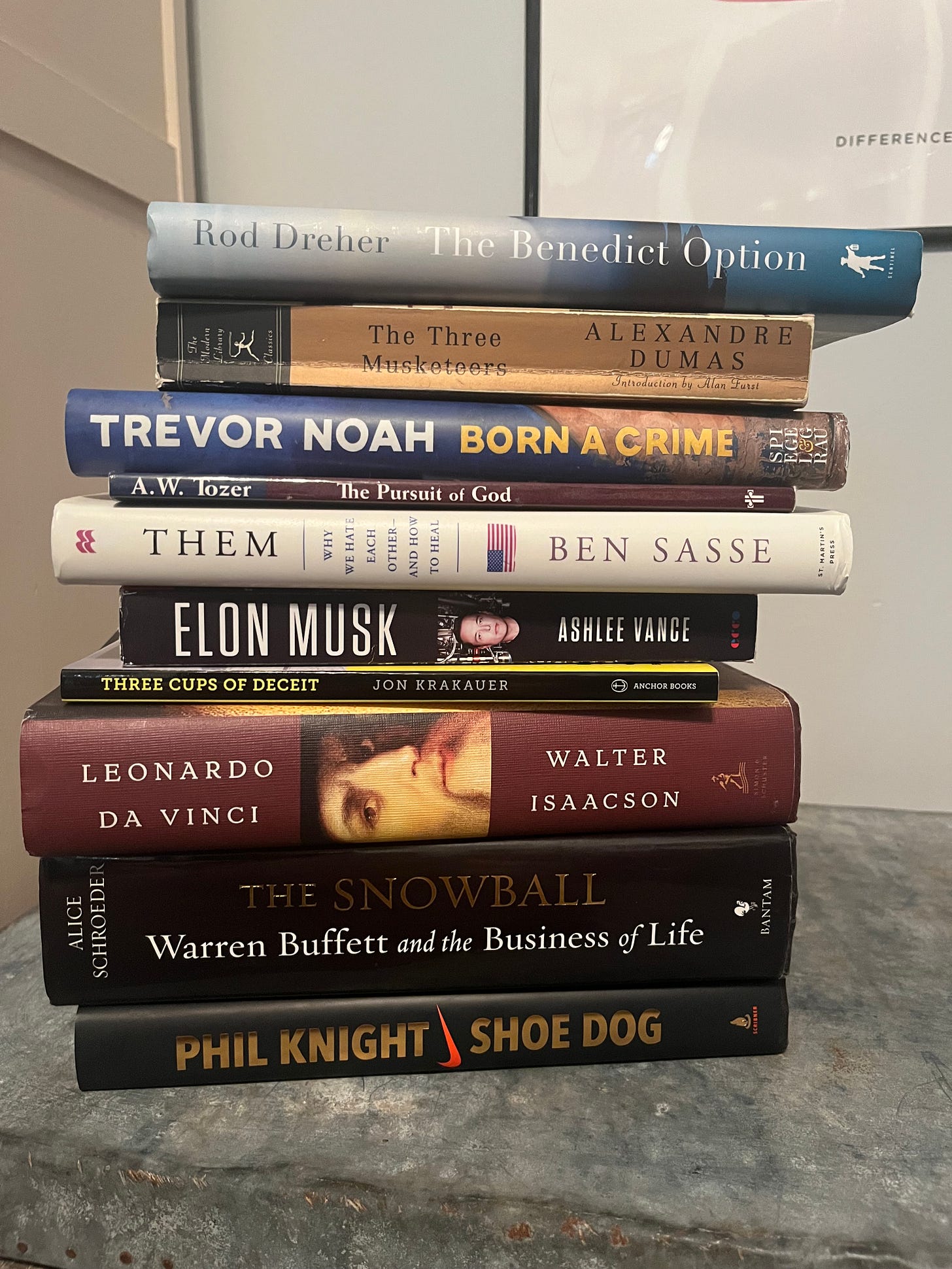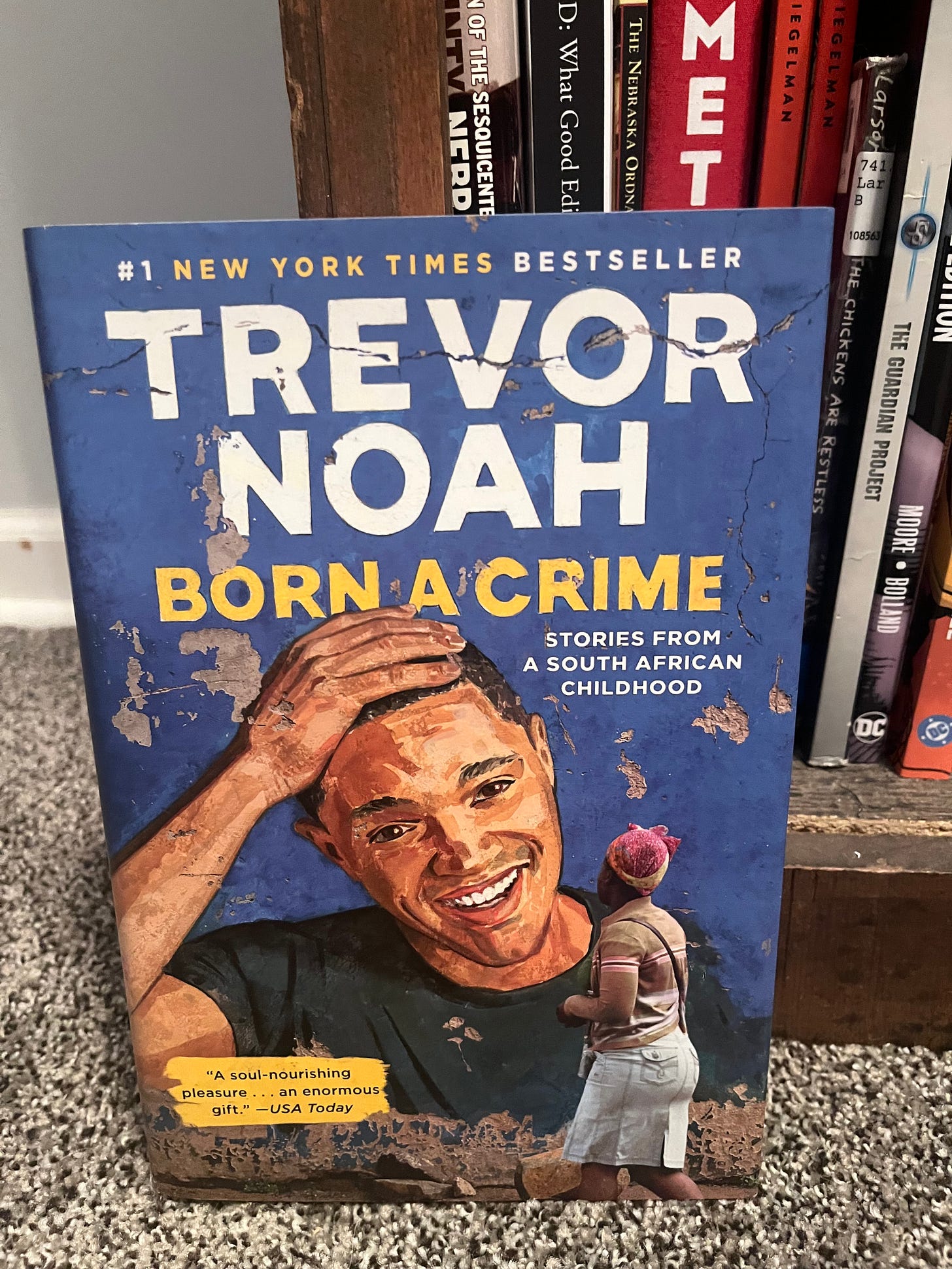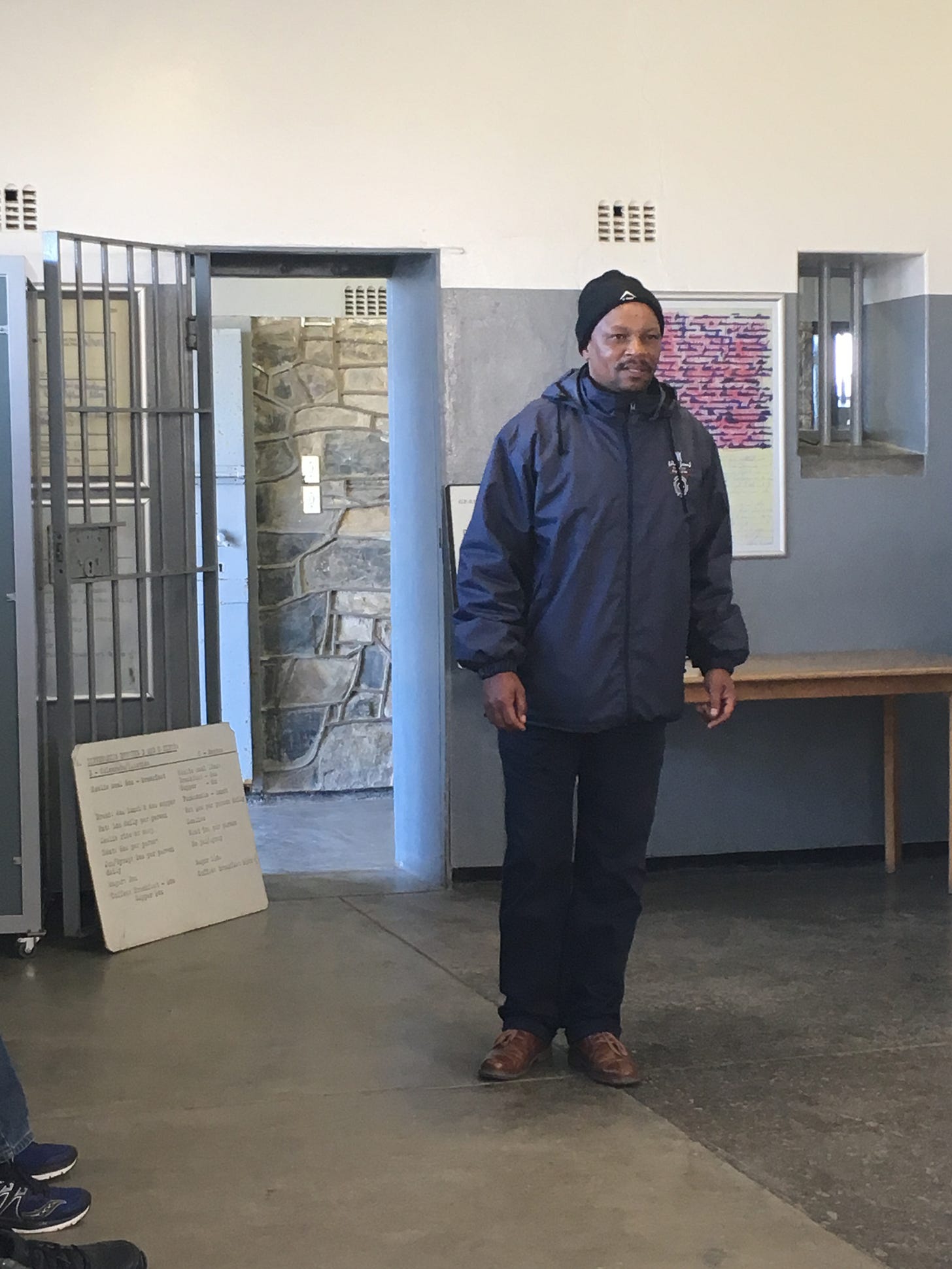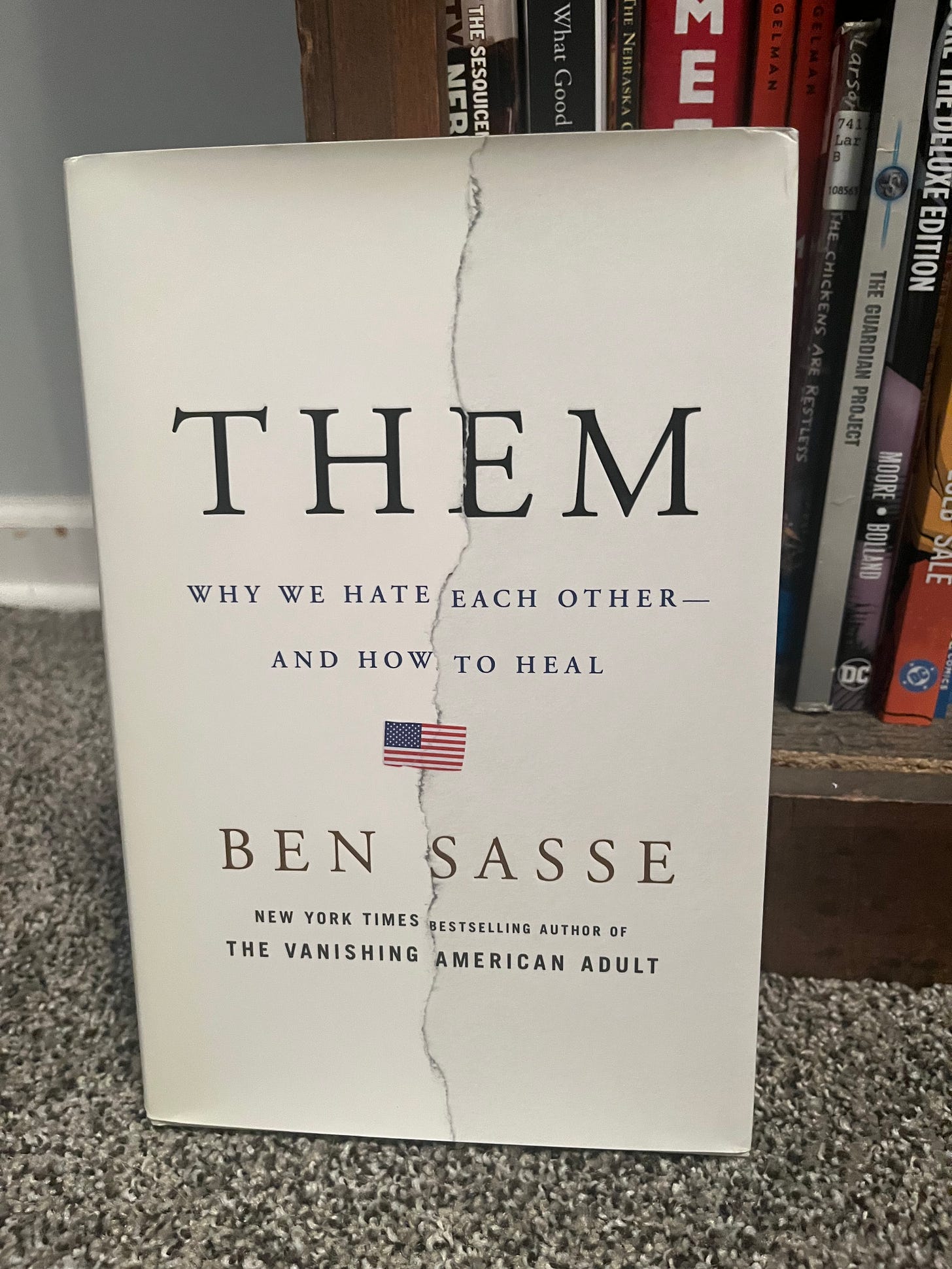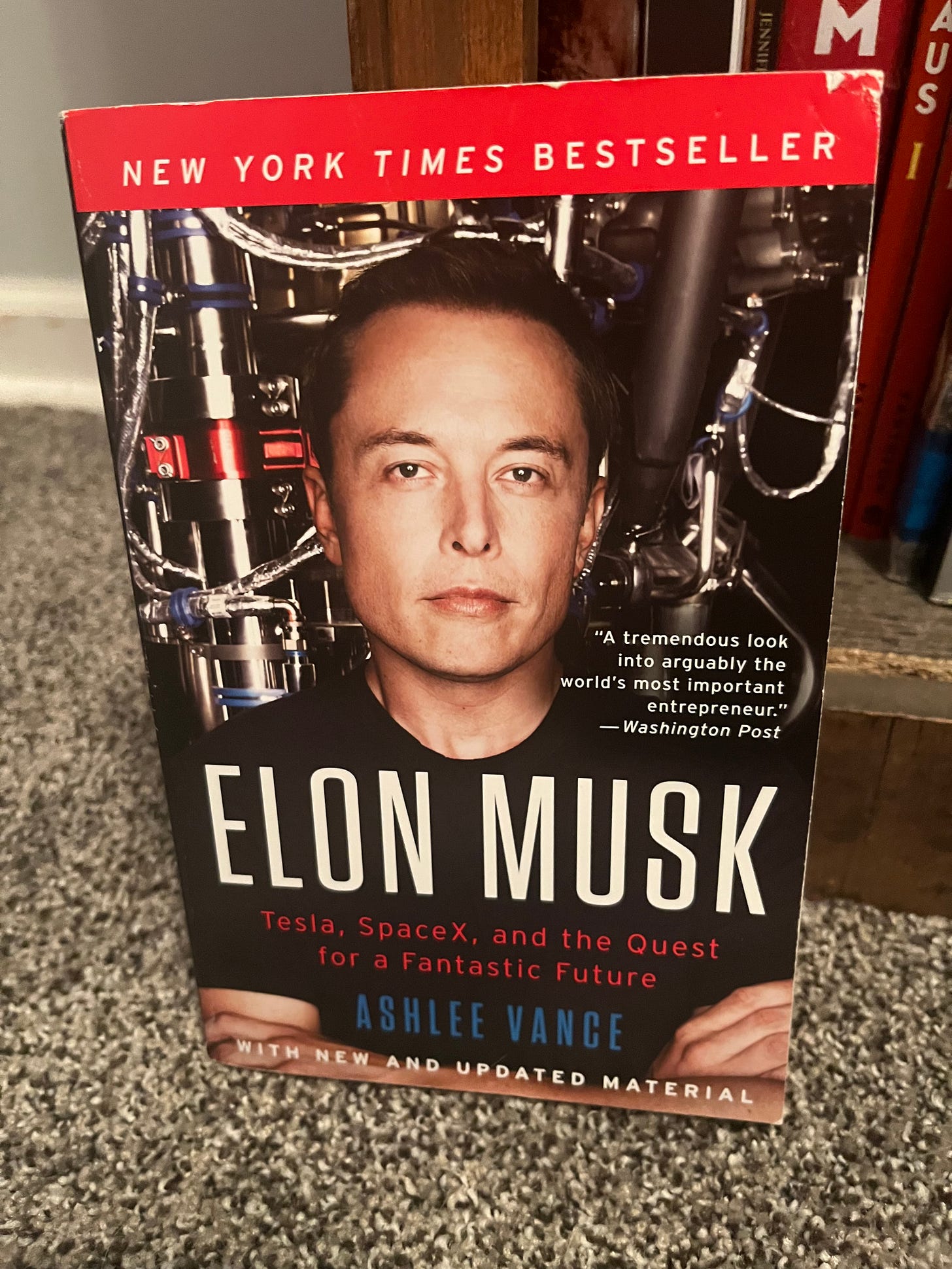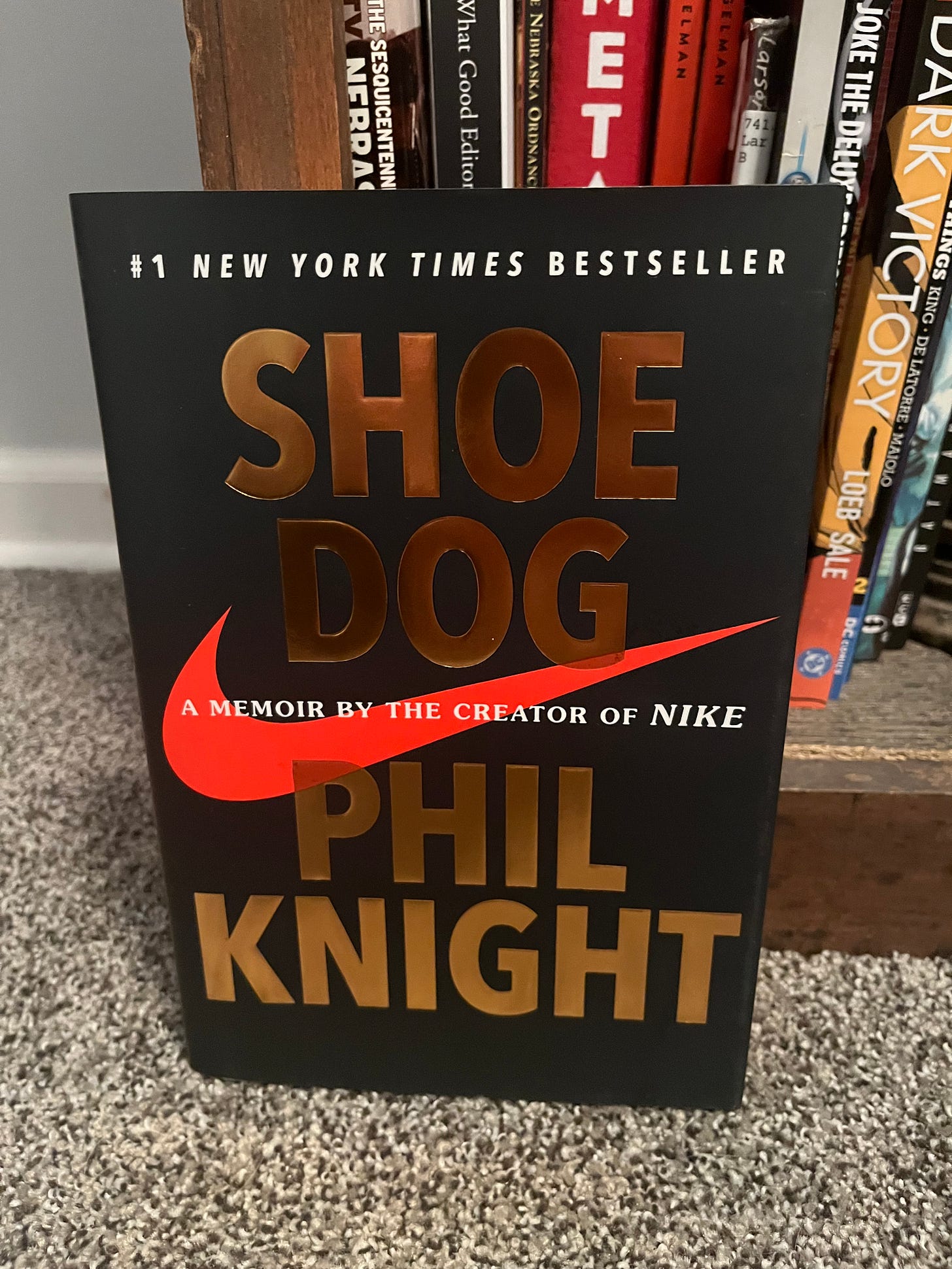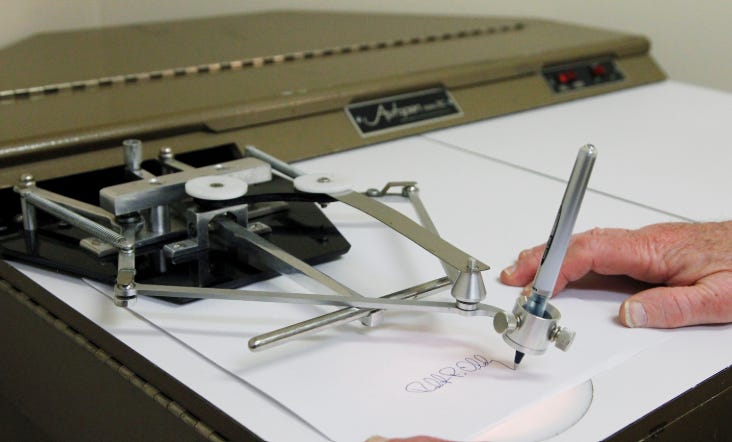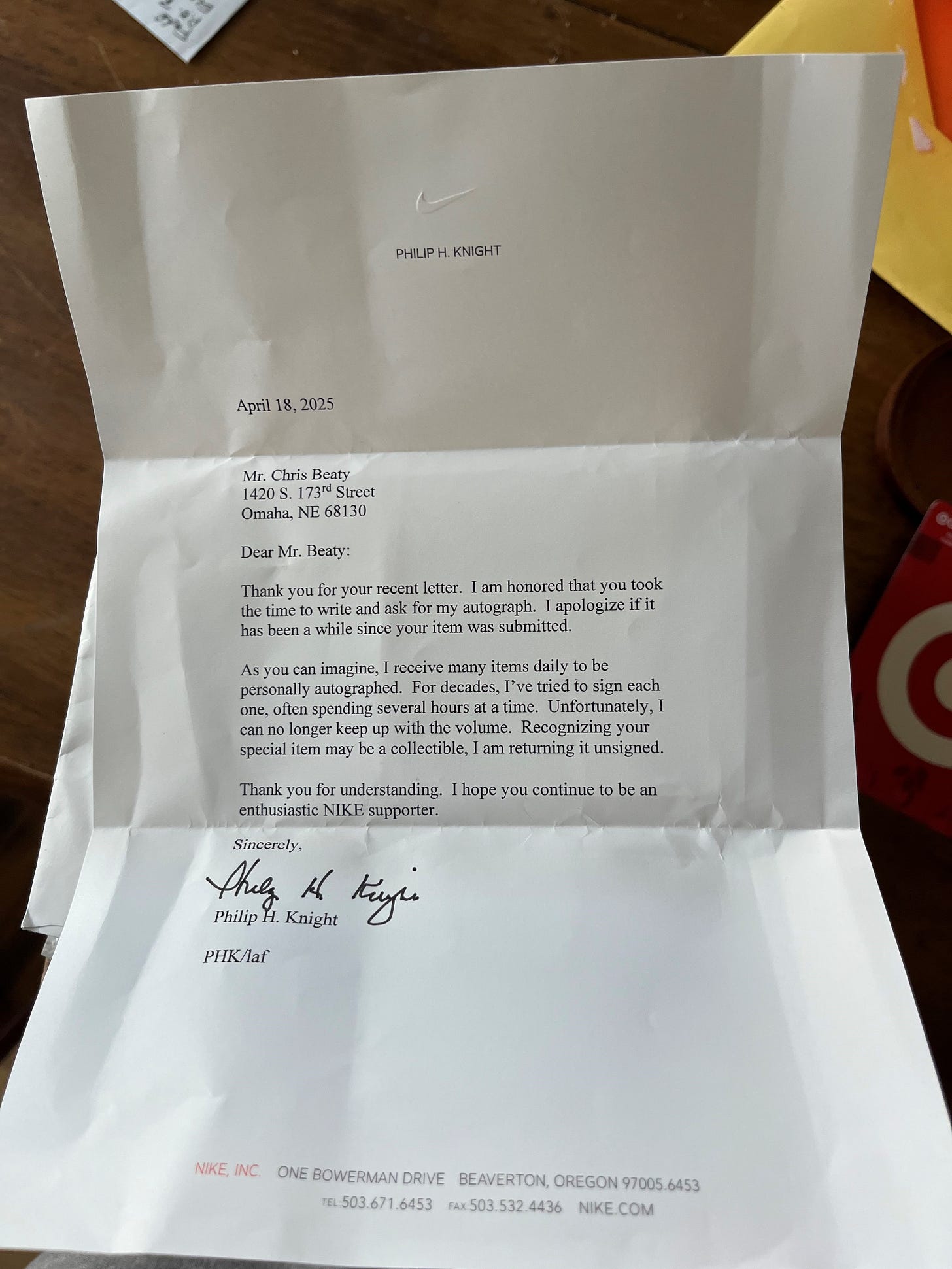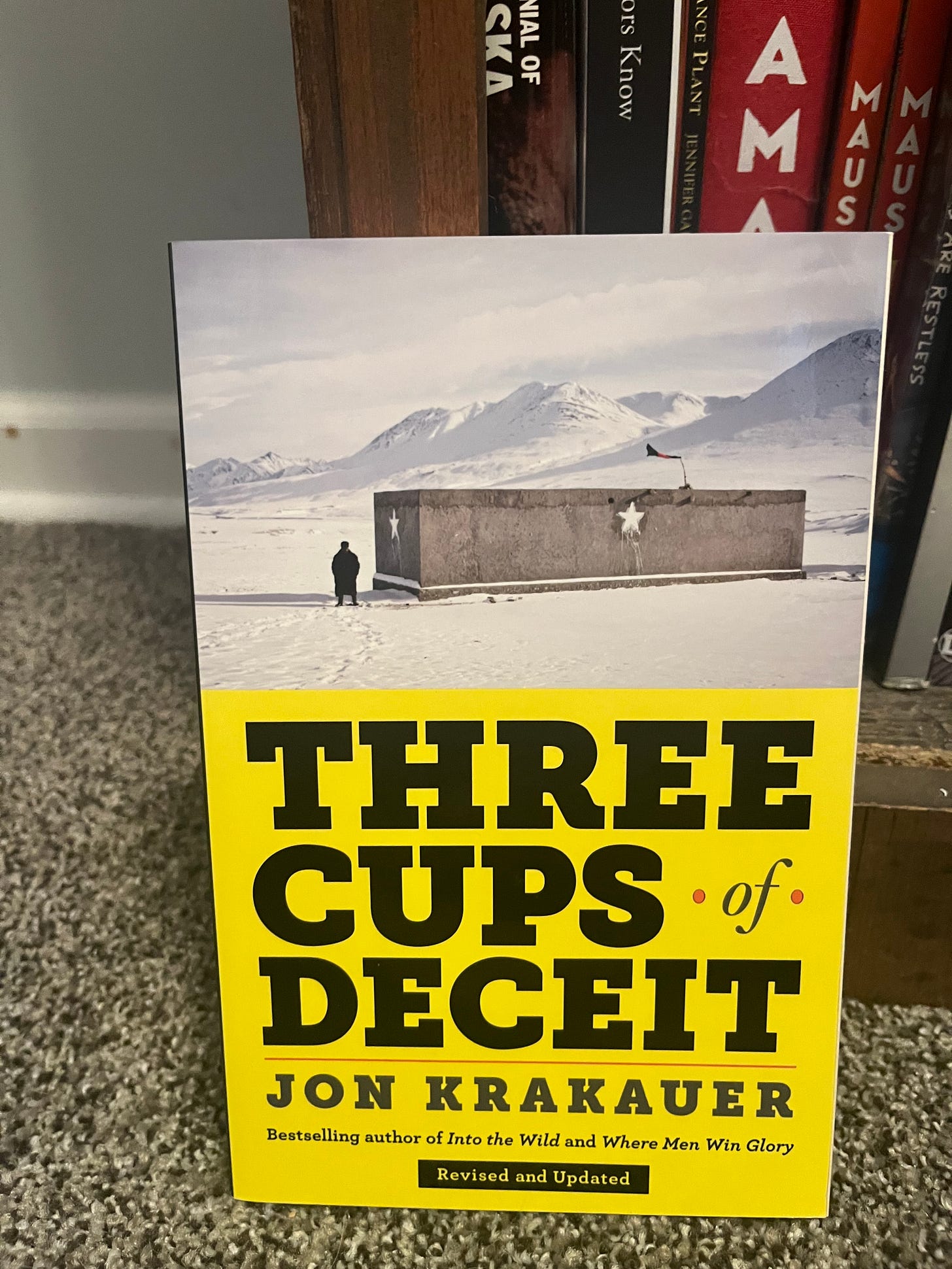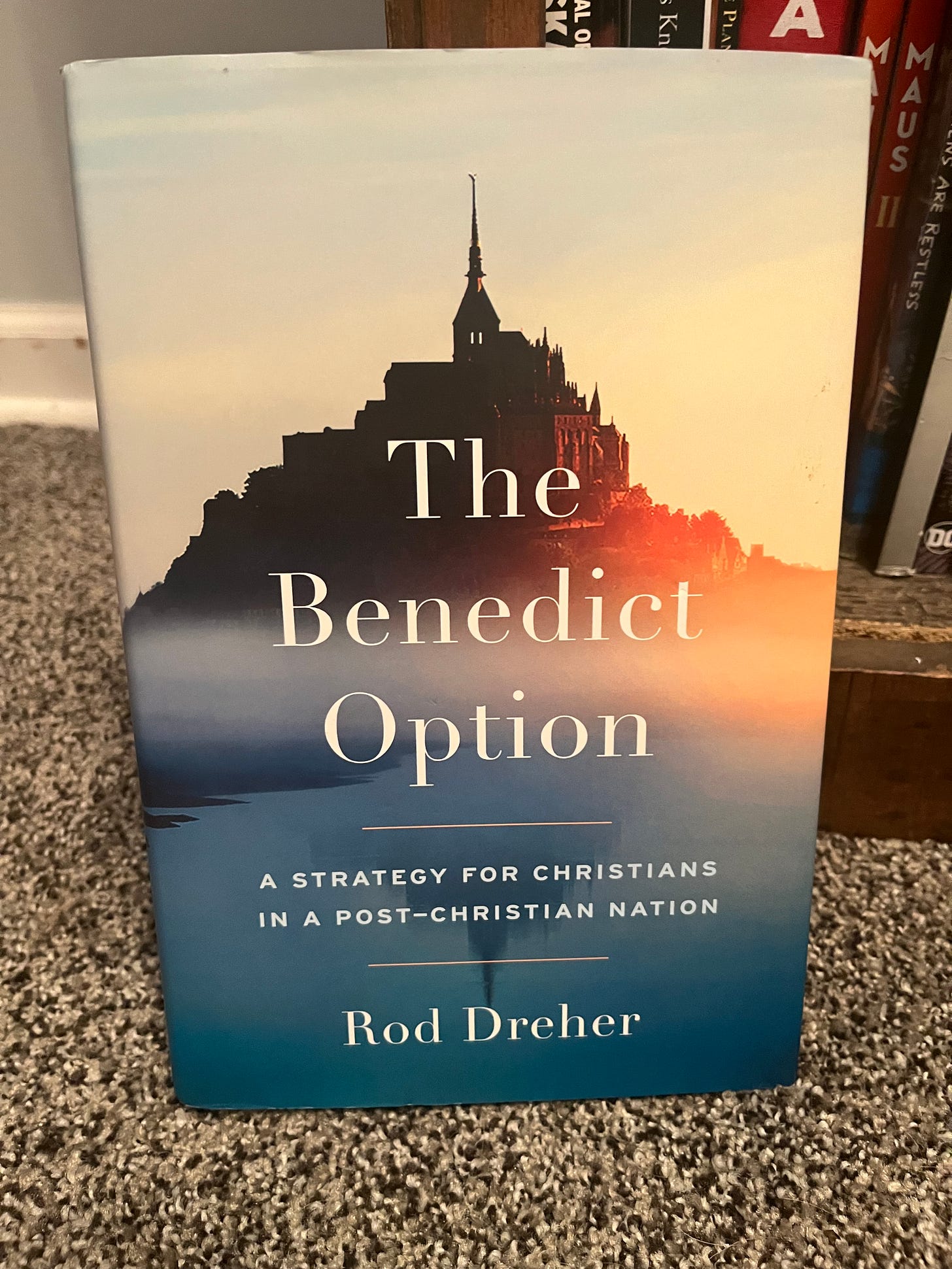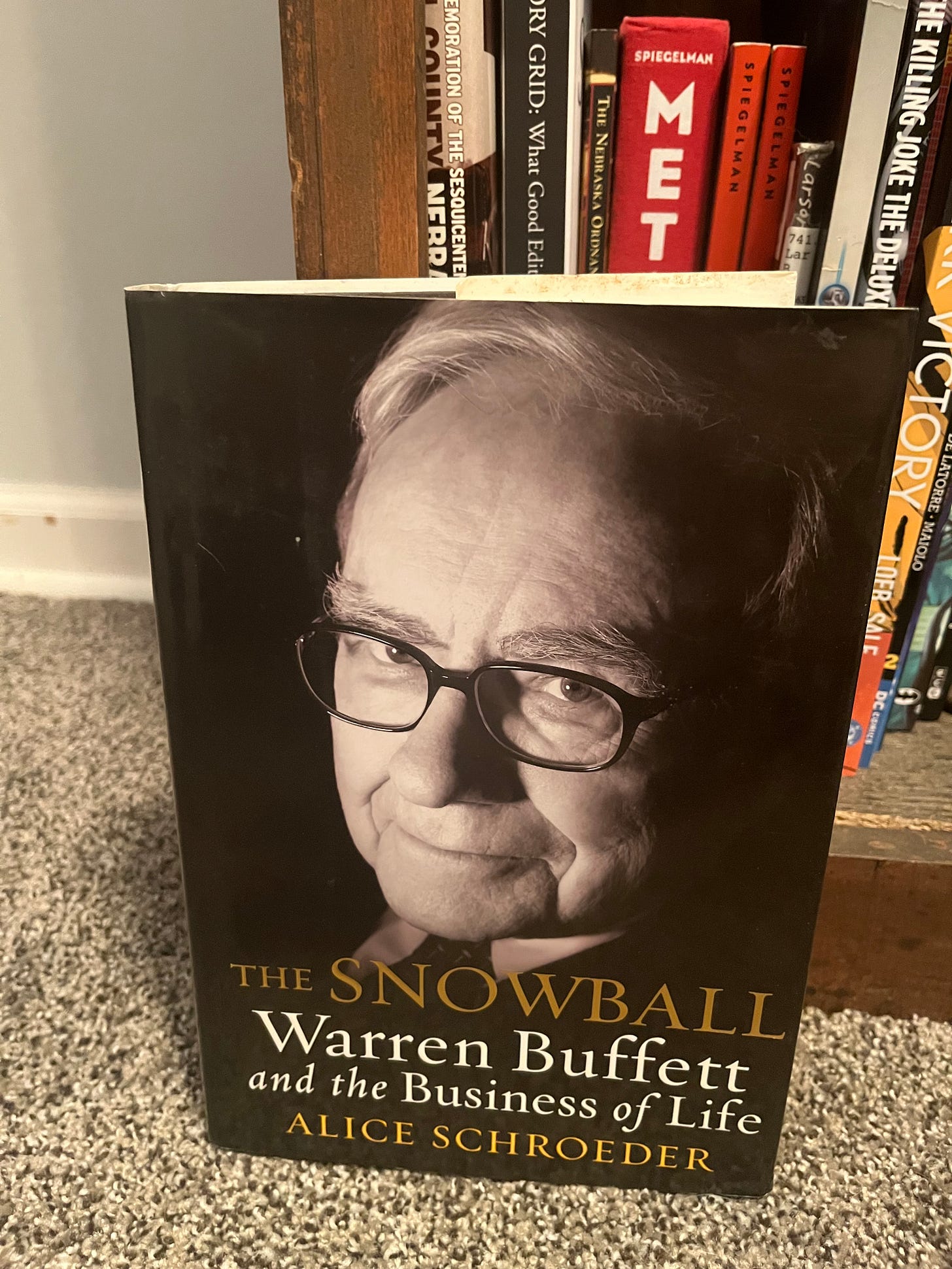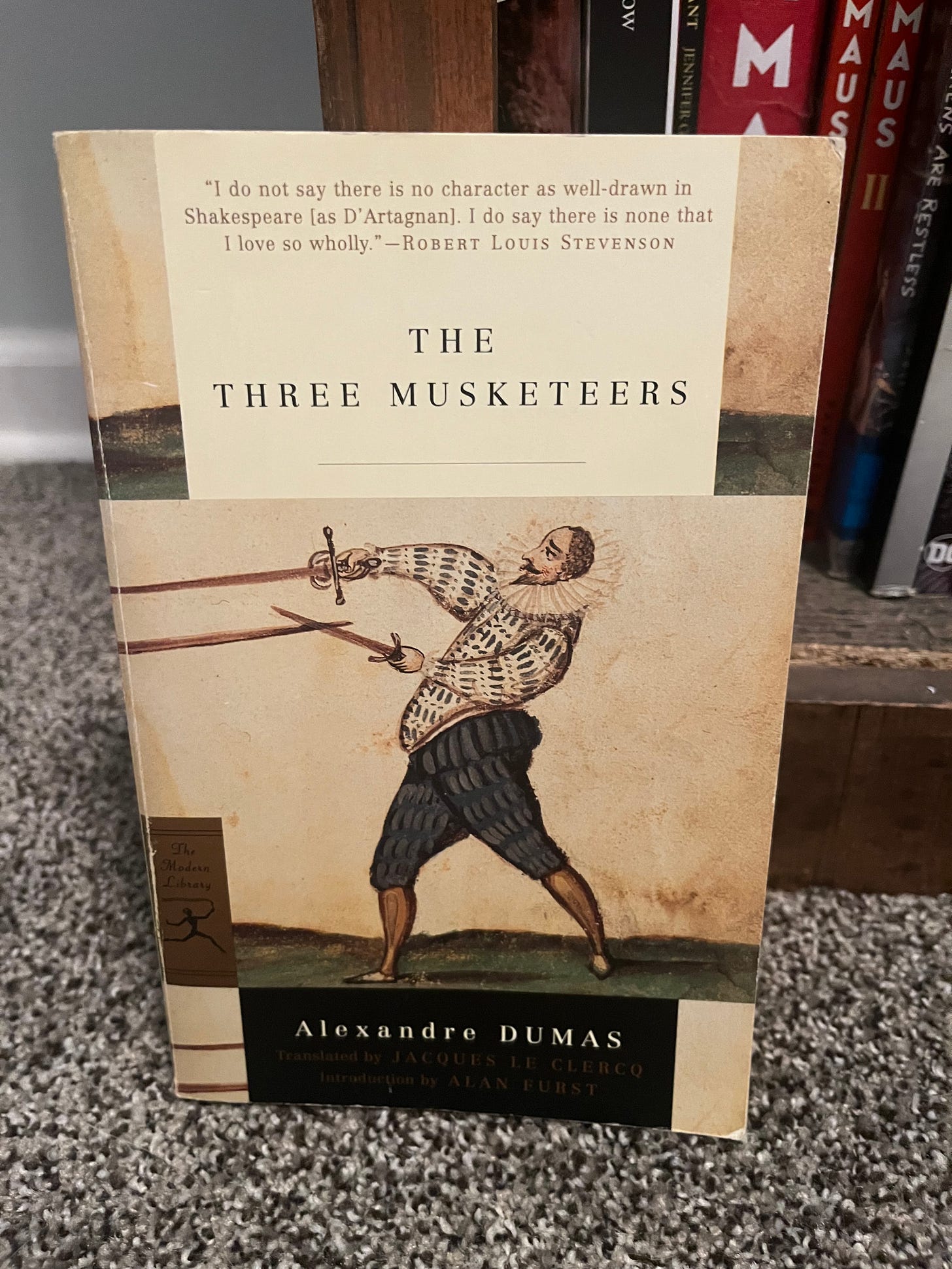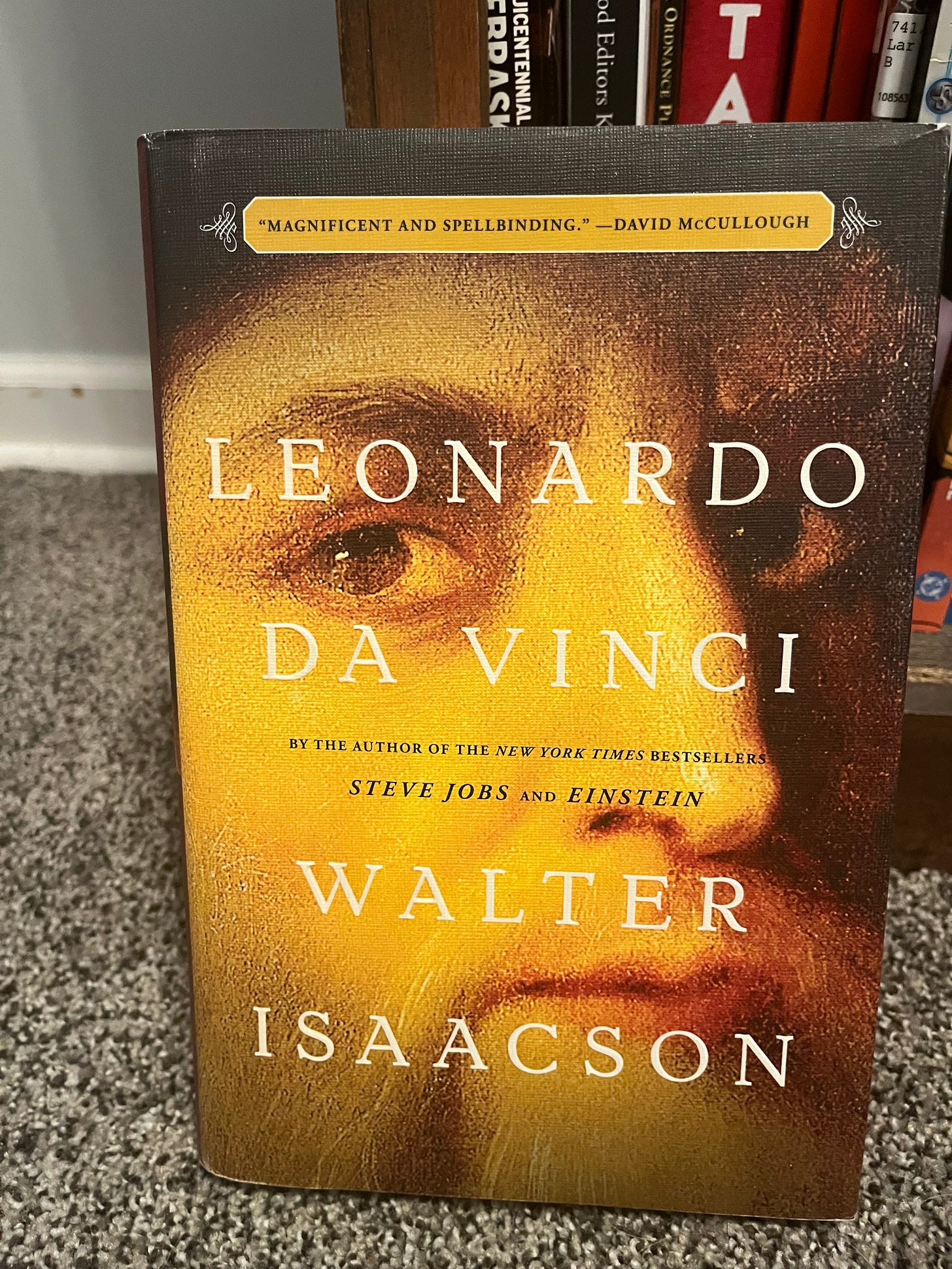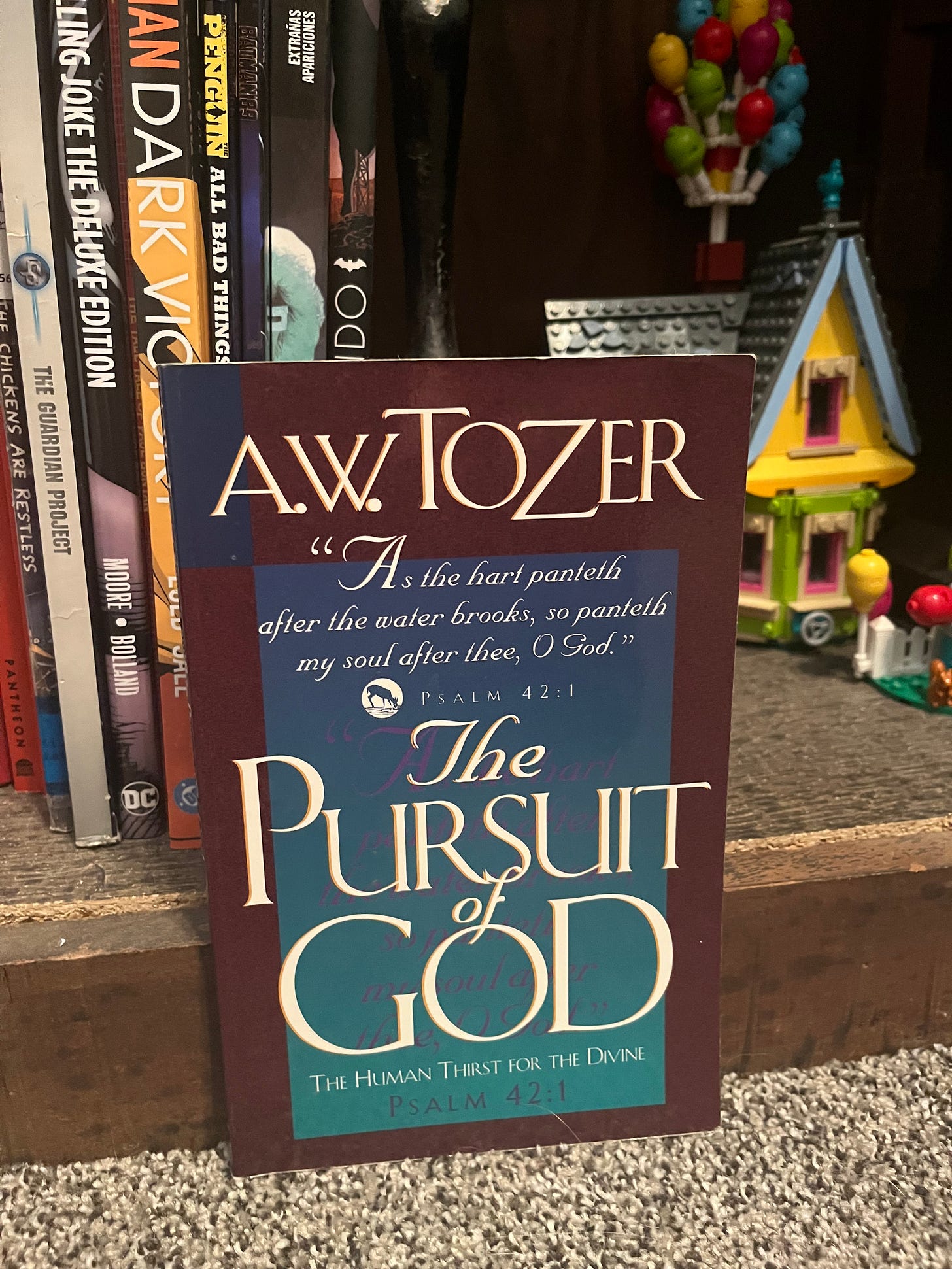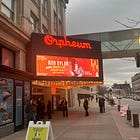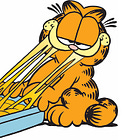1. Born a Crime by Trevor Noah
2. Them by Ben Sasse
3. Elon Musk by Ashlee Vance
4. Shoe Dog by Phil Knight
5. Three Cups of Tea* by Greg Mortenson and David Oliver Relin
6. The Benedict Option by Rod Dreher
7. The Snowball by Alice Schroeder
8. The Three Musketeers by Alexandre Dumas
9. Leonardo Da Vinci by Walter Isaacson
10. The Pursuit of God by A.W. Tozer
I've been writing about myself a lot—it's kind of all I write about. When you start doing this, after a while you realize how unobjective everything you think really is. Human beings are storytellers by nature, by default, hardwired into our being in the way we make meaning. Meaning about our world, about our mentors, about ourselves. We have no other choice. We tell stories that cast characters in certain lights, because that's the only way we can make sense of it.
And the world MUST make sense. It has to make sense. The only thing worse than a world without meaning is a world that we can't even understand.
I don't think this is a deficiency in human beings, in fact I think it may be the singular attribute that makes us human, but it would be foolish to not acknowledge how easily we corrupt this, how easily others manipulate this, how fickle and misleading needing to find sense and meaning in everything can be. When you write to a limited audience (like I do) each of your subscribers feels like someone that is personally invested in you. I recruited many of them individually, and I filled out my mailing list email by email. The fact there are some people left that have yet to hit “unsubscribe” feels like a responsibility. A vote of confidence that what I am doing provides just a small slice of meaning to the world they see around them. (Or maybe they're just unaware they can unsubscribe. My demographic swings older, that's what happens when half of your followers are there to hear stories from your 85-year-old podcast co-host.)
But this responsibility is easily corrupted. I worry about what to say now. Complete honesty and transparency begets disappointment when it doesn't reinforce what someone already believes, and abject terror and failure when it reaches a different conclusion to the core questions of the universe that your reader holds most dear. You become an apostate. A false teacher. A wolf. A failure. A person that needs saving, but if that proves fruitless, then a person that needs silencing.
It's amazing how the smallest of writing platforms still unearths the largest of stakes. And when you don't want to confront those stakes, there are two options. You can choose to entertain (this is easier when you're kind of funny) or you can lie. You pretend like you actually feel what you're supposed to be feeling rather than actually feeling what you are actually feeling. In 2018, I had a hard time actually feeling what I was supposed to be feeling. But I did a good job of faking it. There's a way of faking that gives you more credibility with the people you're faking in front of. You “open up” — you know you did it right when after you're done people don't have any advice (because they can't admit to feeling the same way) but instead say “wow thanks for sharing all that.” And then they ask to pray for you, mumbling all the words through masks of their own while you make sure to tie yours tighter.
A pastor once used a sermon metaphor about how when you read biographies of impressive people, you can't help but be amazed by them yet disappointed in yourself. You begin to measure yourself against them, which tends to detract from any inspiration and morph it into despair. I remember that metaphor because that was the exact metaphor I used when I had lunch with him earlier in the week. A lunch we were having to discuss all the ways I was a failure at his church. The ways he didn't want me to “serve.” The ways I needed to “be humble” and “follow his leadership.” And then he used my exact metaphor as a sermon illustration.
Now he would deny that. Of course he would. He would say he came up with it on his own, or it had been given to him by the Holy Spirit, or from who knew where really. But certainly, it wasn't ripped off from me. Because I was not someone worth quoting. He would deny it because he truly wouldn’t have thought there would have been something of value in me that was worth plagiarizing. He would have had no recollection of that conversation whatsoever.
And that’s the danger with biographies, memoirs, writing and thinking about yourself—you might start believing all the things you write. And you don't even notice how much the normal, the average, the unimpressive really have to offer. The people that don't get books written about themselves, because frankly, they don't need them. They don't need to turn their story into something that makes sense.
•••
1. Born a Crime: Stories from a South African Childhood by Trevor Noah
According to the “Immorality Act of 1927,” in South Africa it was unlawful for a white and black person to be in a romantic relationship. Since Trevor Noah's parents violated this law, he was “born a crime.” I don't think Trevor Noah is all that funny, but man this book is good. It's a fascinating memoir that gives a first-hand glimpse of a racist totalitarian government that existed in my lifetime. I was always taught we got rid of all those before my birth. I read the book in preparation for a trip with Paige to South Africa, and despite the dismantling of apartheid, its impact as could still be felt. We took a tour of Robben Island, the island prison where Nelson Mandela and other political activists were held. Our tour guide was a man that was held captive there for engaging in a non-violent bombing of a government building. He still lives on the island, but by choice, to help the world remember how far we have or haven't come.
We took a safari in the northern part of South Africa, staying as the only guests of a wealthy white couple that owned a safari lodge. The safari guides were white. The cooks, the maids, and the staff were all black. The two groups treated one another with respect, but also deference. Our middle-aged host insisted we say a prayer before every meal and then shared stories with fondness about his childhood growing up in South Africa.
“The I970s— I think that was the best decade.”
A few days later, we visited the Apartheid Museum in Johannesburg. At one display a plaque read that “the 1970s were the best years to be white in South Africa but the worst years to be black or colored.”
•••
2. Them: Why We Hate Each Other— and How to Heal by Ben Sasse
I've always had this fantasy that I would be reading a book on a plane, take a break, look at the seat next to me, and realize I had been sitting by the book’s author the whole time. We would then engage in a first-hand dialogue about the content and have the greatest flight ever. On October 23rd, 2018, my dream came true—sort of.
I was scheduled to fly to Chicago for an afternoon meeting and fly back later that night. The client cancelled on me the day before. Since the plane ticket was nonrefundable and I wasn't expensing a hotel, I decided to take a day trip to Chicago anyways. It was one of those butt crack of dawn flights, the kind business travelers frequent for meetings like mine. I found a window seat in the midsection of Southwest Airlines’ open seating so I could lay my head against the wall of the plane and try to sleep. I was jostled awake when we landed in Chicago, collected my sparse belongings, and noticed that Ben Sasse was seated in the row in front of me. Had I not skipped the vacant middle seat in his row in favor of a window, I could have had an early morning conversation with the author of the book I was reading. And since he was an active US Senator, he would have felt obligated to discuss things with a constituent.
We were stuck in the purgatory of plane deboarding, so I fished out my copy of Them and got Ben's attention. I had already paid extra for an autographed copy when I pre-ordered (I was and am still holding out hope that Ben Sasse is a US President one day), but I asked if he would sign it again. And he did. He was pretty excited about it. This was the second time I had gotten an autograph from Sasse in person, and both times he struck me as the coolest dude ever. I loved the guy, so I was surprised at the non-stop vitriol received from a former high school classmate when I posted a photo of the autograph on Facebook along with this story. His barrage of Facebook attacks was unlike anything I had experienced on social media, and all attempts to constructively engage him proved fruitless. He wouldn't respond to any of my private messages attempting a dialogue, rather he posted attack after attack for the digital public to witness.
I had not spoken to the guy since high school graduation, but I always thought we were cool with one another. I got private messages from other former classmates that were shocked by the venomous reaction.
Fitting—since the entire book is about how much we hate people we disagree with.
“In simple terms: we're biased. Our mind's order-seeking need is responsible for motivated reasoning, which describes our tendency to accept what we want to be true much more easily than we accept apparent new ‘facts’ that we don't want to be true. If you happen to be someone who generally agrees with my politics or my worldview, you are probably inclined to read the pages of this book sympathetically. But if you are on the other side of the political aisle (and let me pause to thank you for giving this book a shot), you might be scanning the pages, looking for a sentence or paragraph that you can use as a justification to dismiss the rest of the book. I get it. I do it, too.”1
•••
3. Elon Musk: Tesla, SpaceX, and the Quest for a Fantastic Future by Ashlee Vance
Did you know Ashlee was a boy's name?
I was recommended this book after expressing fondness for the Steve Jobs biography during a church leader meeting. I was told “if you liked the Jobs biography you’ll love this one.” The guy was right, but Steve Jobs had the advantage of being dead. It's a lot easier to write the story of someone's legacy when they're dead. Vance added an updated afterword to my paperback copy of this book to catch the world up on what Musk had been up to after the initial release, but it had already become outdated. And then about 5 years later I read Walter Isaacson’s own treatment of Musk— not so subtly modeled after his Jobs biography right down to the cover design.
After each installment I thought, “Musk is batshit crazy, but I kind of like him. It's good to have people like that.”
And that brings us to today. I do not currently feel that way. The next Musk biography will have a different ending than the last two.
•••
4. Shoe Dog by Phil Knight
On April 13, 2024, I sent Phil Knight a letter asking him to autograph a hockey puck. One year 8 days later, he sent me what's known in the autograph community as a “form letter” apologizing for not being able to sign my item because he has become overloaded with similar requests. It was addressed to me personally on an official Philip H. Knight letterhead underneath an embossed Nike swish— but it was certainly filled out by a secretary at Nike using a template approved by Nike public relations. There was a signature at the bottom, in real ink, but this was likely made using a device known as an “autopen,” where you can preload a signature and the mechanism draws an exact replica.
To the naked eye, everything appears to be a personal letter from Phil Knight signed by the man himself, but looks can be deceiving.
Still cool though. He could have sent nothing at all.
•••
5. Three Cups of Tea* by Greg Mortenson and David Oliver Relin
When I read Three Cups of Tea, I was touched by the story of a man that risked his life and sacrificed material wealth to build schools for the less fortunate. He even got kidnapped by some shady fucking Taliban dudes at one point, but he was let go because even they were grateful for all the good he was doing in the Middle East.
The only problem was the whole story was bullshit.
I was awkwardly informed of this when I originally posted this Top 10 list on my Facebook page in 2018. In response, an author person I went to college with passive aggressively posted an article discrediting the book. I wrote a “whoops” post and removed Three Cups of Tea from my original Top 10.
Super awesome mountain climber writer outdoorsy adventurer author man Jon Krakauer was similarly duped by Greg Mortenson, but he caught wind of the story in time to write his own book about it. Krakauer donated all the proceeds from that book to a real charity.
•••
6. The Benedict Option: A Strategy for Christians in a Post-Christian Nation by Rod Dreher
“The idea is that serious Christian conservatives could no longer live business-as-usual lives in America, that we have to develop creative communal solutions to help us hold on to our faith and our values in a world growing ever more hostile to them. We would have to choose to make a decisive leap into a truly countercultural way of living Christianity, or we would doom our children and our children's children to assimilation.”2
There's this tension Christians feel after decades of trying to be “in the world but not of world.” It’s an utter exhaustion from constantly failing to convert, challenge, and critique the world around them for not doing things the way it should be. After a while, you realize what you’re doing is not really working. The culture is moving in a different direction, and your Facebook posts and awkward “spiritual conversations” and “gospel presentations” provide little resistance to the flood of cultural momentum. So Rod Dreher suggests we say fuck it and make a Christian culture completely separate from the cesspool of secular influence. We should take our Jesus ball and go home, kind of like some monk named Benedict did.
My favorite part of the book was his historical analysis of western religious thought that served as an introduction to the problem statement. His suggested solutions, however, never made much sense to me.
I really like the book cover design though. I think the blue on white looks nice.
•••
7. The Snowball: Warren Buffett and the Business of Life by Alice Schroeder
As an Omahan, I have a deep fondness for Warren Buffett even though I’m not that into investing. I think he's a good ambassador for our city, and I love driving out-of-town visitors by his modest for-a-billionaire Omaha home.
This book is thick, but a good read. So thick in fact that I was deeply impressed when I spotted a copy on the shelf of a friend that I didn't expect to have interest in the subject matter. He told me to open it. The pages were glued together and hollowed out to house a bottle of whiskey. It was a gag gift from his brother-in-law.
It was funny, but I didn't really see the point. I don’t try to hide my whiskey.
•••
8. The Three Musketeers by Alexandre Dumas
Before reading this, I had only seen the live-action Disney movie of The Three Musketeers. The book is different.
•••
9. Leonardo Da Vinci by Walter Isaacson
Even after reading this book, I still don't get what’s so great about the Mona Lisa.
•••
10. The Pursuit of God by A.W. Tozer
“For it is not mere words that nourish the soul, but God Himself, and unless and until the hearers find God in personal experience, they are no better for having heard the truth.” 3
Them by Ben Sasse, pg. 85
The Benedict Option by Rod Dreher, pg. 2
The Pursuit of God by A.W. Tozer, pg. 4



